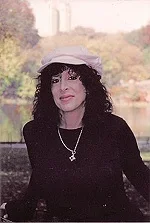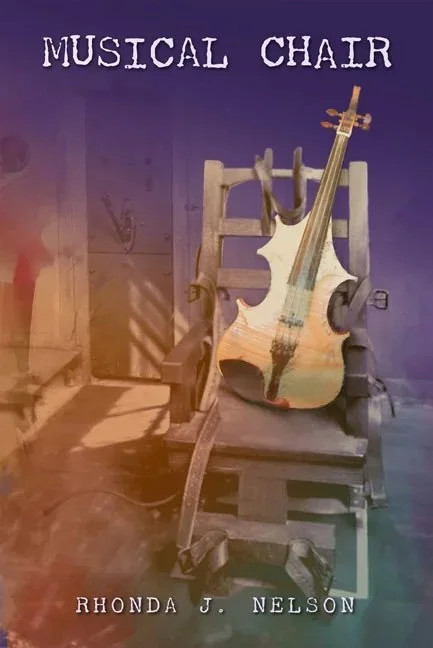Rhonda J. Nelson
Born in Miami, Florida, Rhonda J. Nelson belongs to a family with multiple generations of musicians. She moved to Tampa, Florida, where she still lives, when she was two.
She is the winner of Writers Exchange 2000, sponsored by Poets & Writers, Inc., a Florida Division of Cultural Affairs Fellow, a two-time recipient of the Hillsborough County Arts Council Emerging Artist award, and recent recipient of Hillsborough County Arts Council Individual Artist Award. Her collection Musical Chair is Anhinga Press's 2004 selection for the Van K. Brock Florida Poetry Series.
Her other collections include: The Undertow (Rattapallax Press, 2001) and Shadows & Light (Tampa Bay Review Press, 1991). Her poems have been published in Slipstream, The Panhandler, Survivor Magazine, Asheville Review, Apalachee Review, The Pedestal Magazine, Book of Hope, The Dexter Review, New CollAge, and Sandhill Review, among others.
She is the poet/artistic director for Irritable Tribe of Poets, a collective of instrumentalists and spoken-word artists who perform improvisational music -- actively mixing jazz, rock, funk, and world-music textures with sundry styles of poetry. Rhonda's solo CD project with the band, titled Kahlo, contains twelve narrative pieces on the life and art of Mexican painter, Frida Kahlo.
Rhonda was a professional singer for four years before attending the University of South Florida, where she graduated with a degree in journalism.
MUSICAL CHAIR
BY RHONDA J. NELSON
$12.00. (email us for availability)
Van K. Brock Florida Poetry Series (2004)
The poetry of Rhonda J. Nelson is hard, chiseled and elliptic. Her lines are alive in sounds, relishing the texture and cadence of the words. Her images implant themselves in your mind and will not let go.
Her poems move in and around her subjects, hint at various narratives and motives, further mysteries. They circle and glide through disillusionment and danger, and at the same time enact the struggle and passion of the distressed to survive.
In choosing this poet for the Writer's Exchange program, I felt I'd found a poet not simply with exceptional technical skills, but one who's sensibility and voice implied a deeper vision and attachment to the world, a strength and purpose that would not be denied. --David Mura, poet, author of After We Lost Our Way, The Colors of Desire, and judge for Poets & Writers, Inc. Writer's Exchange 2000
Jazz
To hear my father tell it, jazz died
in 1970, Joe Williams relegated
to third chair behind the Brazilians.
The new boys play too many notes.
Logic is an arsonist, strikes
its match when night is darkest
filling my father's head
with sixteenths and thirty-seconds
while he prays for whole notes.
When the band begins, my father cups
his hands over his deaf ears.
In 1972, logic drug his stand up bass
down the alley to the pawn shop
threw the claim check away.
....
At three a.m. I sit on the desk
in front of an open window. Cold air
slaps my face; I cry to Coltrane, cry
to Miles, cry for the bassist
who stole the music and left a vase of tulips
in its place. To say he never gave me
flowers is redundant: he never gave me anything.
He took my home, my map, my eyes, left me
blind in heavy weather next to the empty
saxophone case. So much for logic.
Logic depends on strangers
to throw coins in its cup for the next meal
not unlike my father's cupped hands.
Chaos splits a reed between its teeth
dedicates the next song to me.


